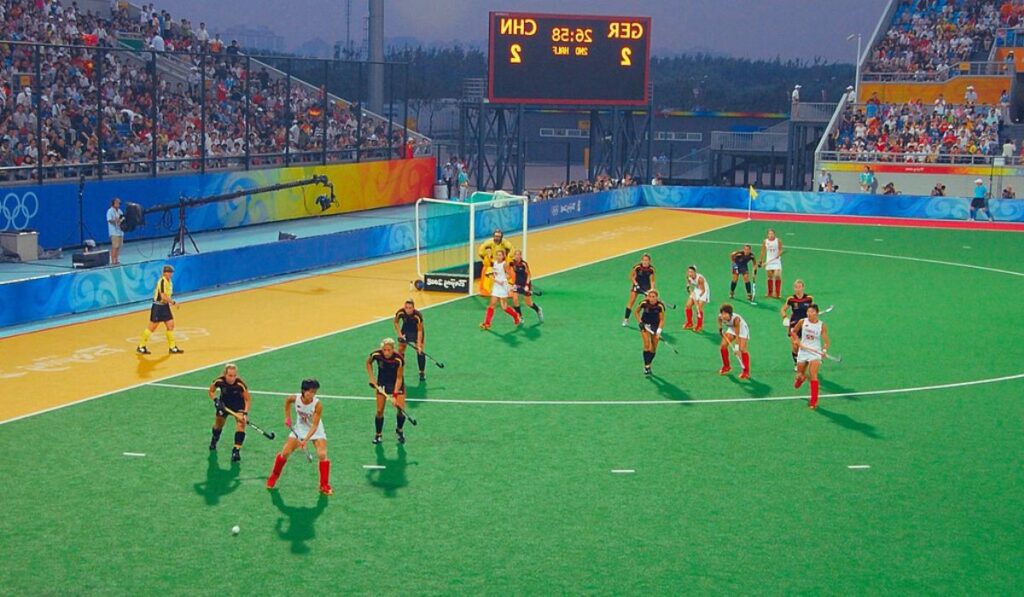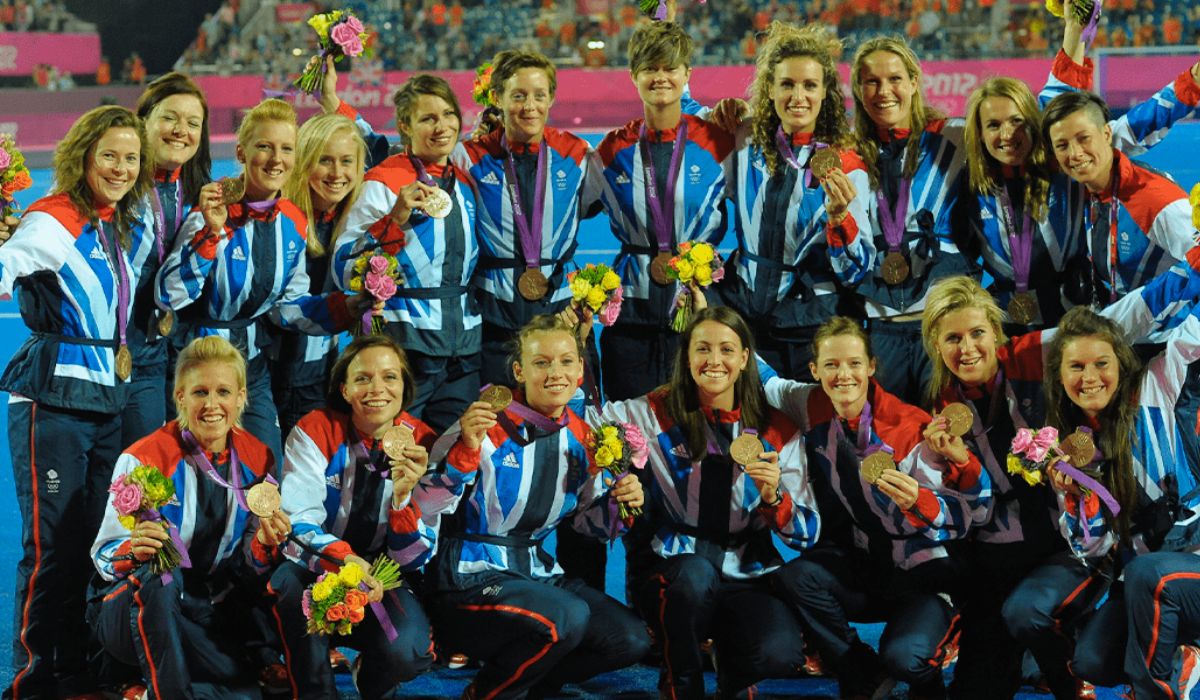From Despair to Glory: How 2008 Olympics Hockey Became the Most Powerful Chapter in the Sport’s History
A Historic Chapter That Changed Hockey Forever
The 2008 Olympics hockey tournament in Beijing was not just another sporting event. It was a stage where emotions ran wild, dreams soared, and hearts were broken. For some, it was the pinnacle of sporting achievement, while for others, it became a haunting memory of missed chances. Under the blazing sun and the roar of thousands of passionate fans, hockey in 2008 became more than a game—it became a dramatic tale of grit, glory, and heartbreak.
The air was thick with anticipation as players stepped onto the synthetic turf, sweat dripping from their brows before the first whistle even blew. Every strike of the ball carried the weight of a nation’s hope, every missed goal echoed with the sound of shattered dreams. That year, hockey was not only played on the field—it was written in the very pulse of the Olympics.
The Powerhouses of 2008 Olympics Hockey
The 2008 Olympics hockey tournament saw fierce competition from some of the most dominant nations in the sport. Australia, Germany, Spain, and the Netherlands came in as favorites, bringing with them not just skill but also an aura of invincibility. Each team had seasoned warriors and rising stars, all ready to etch their names into Olympic history.
Germany arrived with razor-sharp discipline, their strategies drilled into perfection. Australia, known for their attacking flair, stormed into matches like a tidal wave. Spain came with artistry, weaving passes that looked more like poetry than sport. And then there were teams like India and Pakistan, nations once hailed as hockey giants, fighting desperately to prove they still belonged on the world’s biggest stage.
Germany’s Ruthless March to Gold
When people talk about 2008 Olympics hockey, one name inevitably rises above all—Germany. Their road to victory was not just a display of skill but a lesson in discipline, resilience, and tactical genius. Germany played with an almost mechanical precision, suffocating opponents with a defense so tight it seemed impenetrable. Their midfield controlled the rhythm like a maestro conducting an orchestra, while their forwards struck with deadly accuracy.
In the final, Germany faced Spain, a team burning with passion and flair. But passion alone wasn’t enough. Germany’s ice-cold execution silenced Spain’s fire, and with a 1-0 win, they claimed the gold medal. The triumph was not flamboyant, but it was absolute. For German players, every drop of sweat shed in preparation culminated in that golden moment, a memory carved forever in Olympic history.
Spain’s Agony of Silver
For Spain, the silver medal in 2008 Olympics hockey was both a proud achievement and a cruel heartbreak. They played some of the most beautiful hockey of the tournament, dazzling fans with their artistry and creative flair. Their passing was silky, their runs electrifying, and their spirit contagious.
Yet, when it mattered the most, they faltered against Germany’s clinical approach. The pain of standing on the podium with silver—so close to gold yet denied—was etched on their faces. Tears mingled with the sweat of battle as they waved to their supporters, knowing they had won respect but missed immortality.
Australia’s Bronze—Glory With Regret
Australia came into the 2008 Olympics hockey as defending champions, bursting with confidence and raw energy. Their attacking game was ferocious, and they bulldozed through the group stages with dominance. But in the semifinals, Spain shattered their golden dream.
Australia recovered to claim bronze, a medal many nations would cherish, but for the Australians, it felt like a consolation prize. Their fiery passion burned even brighter, but beneath the celebration was the ache of knowing they could have been at the very top again. The bronze symbolized both achievement and the bitter aftertaste of what could have been.

The Decline of Asian Giants
Perhaps the most emotional storyline of 2008 Olympics hockey was the decline of the once-mighty Asian giants—India and Pakistan. These nations had ruled world hockey for decades, producing legends who dominated the Olympics. But in Beijing, their struggles were painfully visible.
India, shockingly, did not even qualify for the tournament, a first in Olympic history. For a nation that once wore the crown of hockey supremacy, this was nothing short of a national heartbreak. The absence of India in Beijing was like silence in a symphony—noticeable, haunting, and tragic.
Pakistan, meanwhile, participated but faltered badly. Their once-magical stick work and fluid play looked outdated against the speed and fitness of European teams. They finished near the bottom, leaving fans devastated and nostalgic for the glory days. The decline of these giants painted the 2008 Olympics hockey tournament with shades of sorrow.
The Roar of the Chinese Crowd
Hosting the Olympics gave China an undeniable advantage, and their men’s hockey team rose to the occasion with pride. Though not medal contenders, they played with incredible spirit, fueled by the thunderous roar of home fans. Every goal they scored sent the stadium into a frenzy, every defensive stand earned deafening applause.
The 2008 Olympics hockey in Beijing became a celebration for China, a declaration that they were no longer outsiders but a nation capable of competing with the best. Their performance may not have secured medals, but it secured respect—and that, sometimes, is just as powerful.
The Beauty and Brutality of Hockey in Beijing
The 2008 Olympics hockey tournament was a paradox of beauty and brutality. The beauty came in moments of exquisite stick work, breathtaking passes, and goals that felt like pure magic. The brutality came in the form of crushing defeats, exhausted bodies collapsing on the turf, and tears flowing freely in both victory and loss.
Hockey in Beijing was a reminder of why we love sport—it is unpredictable, raw, and deeply human. It gives us goosebumps, it breaks our hearts, and it makes us believe in miracles.
Legacy of 2008 Olympics Hockey
Looking back, the 2008 Olympics hockey tournament was more than a battle for medals. It reshaped the global hockey map. Germany’s victory cemented their status as the new powerhouse. Spain’s silver showed their rise as a force to be reckoned with. Australia’s bronze proved their consistency at the top. And the decline of India and Pakistan marked the painful end of an era.
The lessons of Beijing still echo today—fitness, discipline, and modern tactics had replaced artistry and individual brilliance as the keys to success. It was a turning point, a year when hockey truly evolved.
The Emotional Aftertaste
Years later, fans still talk about the 2008 Olympics hockey tournament with emotion. For some, it was a story of triumph—the golden glow of Germany still shines. For others, it was a tale of sorrow—India’s absence and Pakistan’s downfall remain wounds that haven’t fully healed.
But perhaps the greatest legacy of Beijing 2008 is that it reminded the world why hockey is more than a sport. It is a living, breathing drama played on green turf, where every whistle carries the weight of dreams, and every stroke of the stick is poetry in motion.
The Fever That Surrounded 2008 Olympics Hockey
The 2008 Olympics hockey tournament wasn’t just about the matches played under the bright Beijing sun; it was about the fever that gripped fans across the world. The excitement was tangible. Crowds wore their national colors, flags waved in every corner of the stadium, and chants echoed like thunder. For spectators, the atmosphere wasn’t merely about watching a game—it was an immersion into an emotional battlefield where dreams could rise or shatter in a matter of seconds.
The Passion of the Beijing Stadium
Walking into the stadium during the 2008 Olympics hockey matches was like stepping into a roaring cauldron. The smell of the freshly watered turf, the sharp sound of whistles, and the rhythmic drumming from stands created a sensory orchestra. Players felt the weight of millions of eyes watching them, and every sprint, every dribble, every strike of the stick carried both pride and pressure. It wasn’t a game; it was a test of willpower.
The Unforgiving Heat
Beijing’s late summer heat during the tournament added an extra challenge. The sweltering humidity made every sprint a draining task, sweat dripping relentlessly down players’ faces. Spectators too felt it, their energy feeding into the athletes battling below. The heat became part of the story of 2008 Olympics hockey, turning matches into both physical and emotional marathons where endurance often dictated victory.
Rivalries That Defined the Tournament
What made 2008 Olympics hockey unforgettable were the rivalries that reignited on the turf. Traditional giants like Germany, the Netherlands, and Australia brought fire to every contest, while Asian powerhouses like India, Pakistan, and South Korea sought to reclaim former glories. Each clash carried with it a history that went beyond medals—a history of pride, of nations trying to leave a permanent mark in Olympic folklore.
The German Powerhouse
Germany’s performance in 2008 Olympics hockey was clinical, precise, and ruthless. Their gameplay was like a well-oiled machine, each pass perfectly timed, each movement calculated. Watching them was like witnessing a choreographed dance, yet with the power of steel. They marched through the tournament with a hunger in their eyes, and fans could sense from the very first game that they were here for nothing less than gold.
The Heartbreak of the Netherlands
The Netherlands entered Beijing with immense confidence. Their orange jerseys lit up the pitch, and their style—fast, elegant, creative—was captivating to watch. Yet, 2008 Olympics hockey wasn’t forgiving to them. Despite moments of brilliance, heartbreak followed in key matches. For Dutch supporters, it felt like watching a beautiful symphony interrupted midway, leaving behind a lingering ache that still echoes today.
Australia’s Relentless Spirit
The Australian team embodied resilience. Known for their stamina and aggression, they came to Beijing determined to rewrite history. Every match showcased their tireless running, their thunderous strikes, and their never-say-die spirit. Even when the odds stacked against them, the Australians in 2008 Olympics hockey fought with a raw energy that made fans rise to their feet in admiration.
The Asian Battle for Glory
For India and Pakistan, 2008 Olympics hockey carried more than just Olympic hopes—it carried legacies. Once rulers of world hockey, their performances in recent decades had faltered, but Beijing gave both teams a stage to fight for pride. When these two nations clashed, the stadium trembled with intensity. The smell of history was in the air, and every stick clash sounded like a drumbeat of rivalry that had lasted generations.
South Korea’s Tactical Brilliance
South Korea added its own unique flavor to 2008 Olympics hockey, relying heavily on tactical sharpness and fitness. Their defense was like a steel wall, their counterattacks sharp as blades. They may not have had the same star power as European giants, but their discipline and work ethic carved them a respected place in the tournament.
The Women’s Tournament Drama
The women’s matches in 2008 Olympics hockey brought their own unforgettable stories. Argentina, the Netherlands, and China delivered gripping performances that often left the crowd breathless. The elegance of dribbling, the sheer determination in defense, and the raw emotional celebrations made the women’s competition an equally vital heartbeat of the games.
The Rise of Argentina’s Women
Argentina’s women’s team, led by iconic players, played with flair and fearlessness. Their stickwork was mesmerizing, their attacking instincts electrifying. In 2008 Olympics hockey, they captured not just wins but hearts, showing the world that hockey was a sport of passion, beauty, and intensity.
China’s Unexpected Fire
As the host nation, China’s women’s team became one of the most captivating stories of 2008 Olympics hockey. Cheered on by roaring home crowds, they displayed determination that bordered on obsession. Every defensive save, every attacking run carried with it the weight of a billion hopes. Their journey proved that when passion meets opportunity, miracles aren’t far behind.
The Sound of Victory and Defeat
Few moments in Beijing were as emotionally raw as the final whistle of each game. In 2008 Olympics hockey, victory sounded like a thousand drums echoing through the sky, while defeat was heavy silence broken only by tears. The contrast was heart-wrenching—one side screaming with joy, the other collapsing on the turf, drenched in despair.
The Medal Matches
The climax of 2008 Olympics hockey came with the medal matches, where everything boiled down to minutes of glory or despair. The final was not just a game—it was the stage where warriors turned into legends. Germany’s gold medal triumph was celebrated with roars of pride, while their opponents walked away with silver that felt painfully heavy.

Fans Who Lived the Dream
The fans who traveled to Beijing still recall the 2008 Olympics hockey experience as a once-in-a-lifetime memory. Many describe the goosebumps they felt during national anthems, the tears when their teams lost, and the uncontrollable joy when their flags rose high. For them, hockey wasn’t just entertainment—it was life, passion, and identity.
The Emotional Burden of Players
Behind every sprint and strike in 2008 Olympics hockey was an untold emotional weight. Athletes carried the dreams of their nations, the expectations of coaches, the sacrifices of families. For some, the Olympics were the final chapter of long careers; for others, it was the beginning of legends. The pressure was immense, yet they embraced it with grit.
Memories That Never Fade
Though years have passed, 2008 Olympics hockey continues to live in the memories of players and fans alike. The images of packed stadiums, of sweat glistening under Beijing’s lights, of flags waving endlessly, still evoke shivers. It was a moment in history where sport transcended boundaries and became pure emotion.
Lessons Beyond the Turf
The legacy of 2008 Olympics hockey wasn’t only about medals and rankings. It taught lessons of resilience, unity, heartbreak, and triumph. It reminded the world why hockey remains one of the most soulful Olympic sports—fast, fierce, and deeply human.
A Tournament That Changed Hockey
Beijing 2008 set new standards for world hockey. From infrastructure to broadcasting, from fan engagement to tactical innovations, 2008 Olympics hockey pushed the sport into a new era. It showed that hockey wasn’t just tradition—it was evolution, capable of reinventing itself for future generations.

